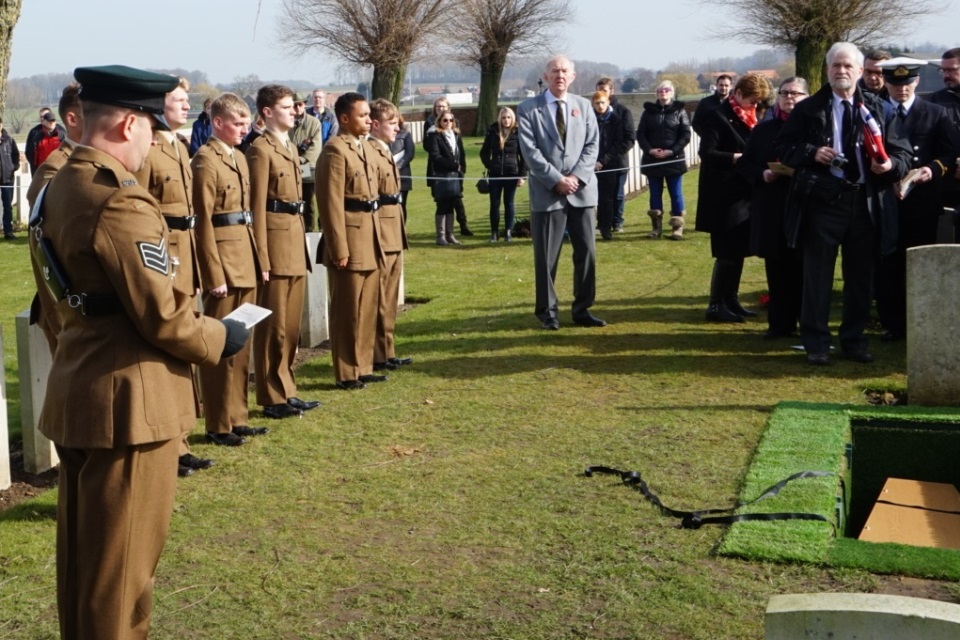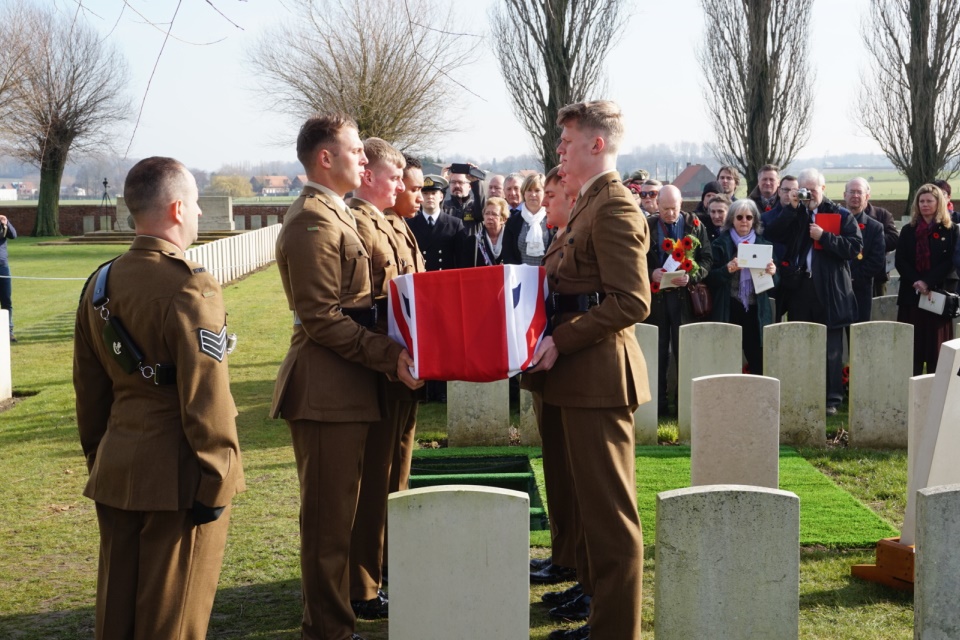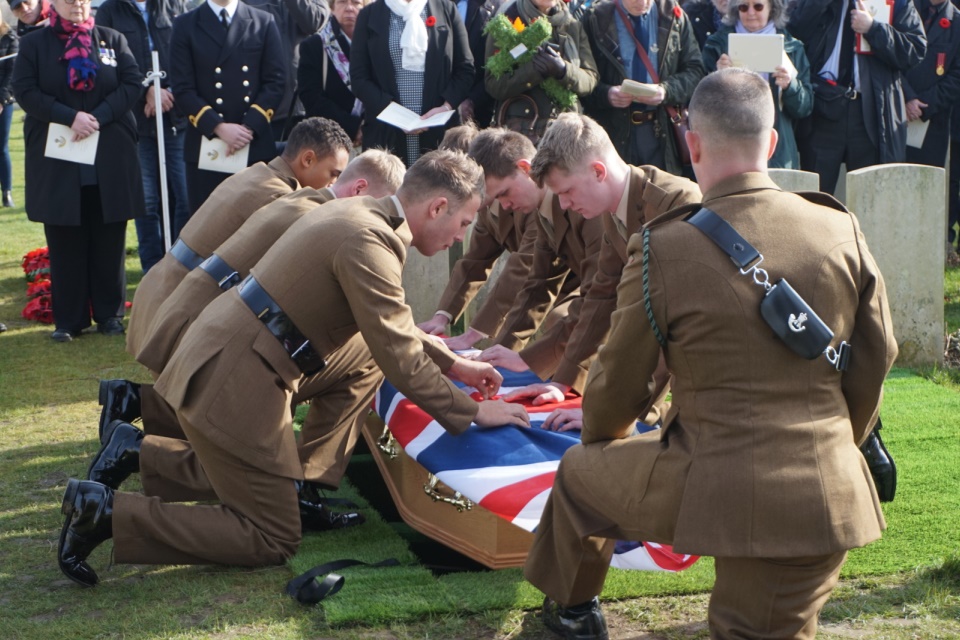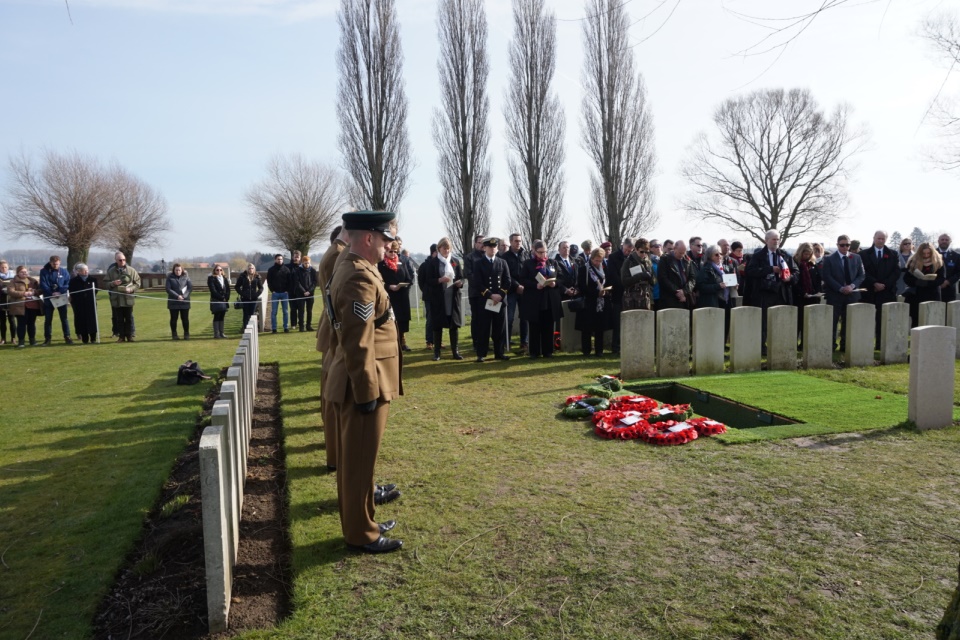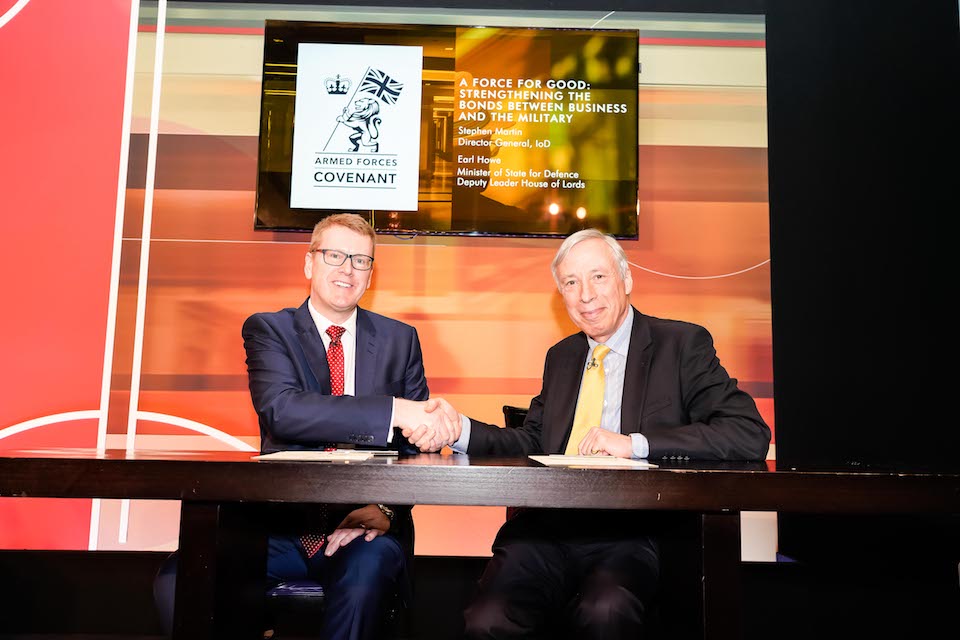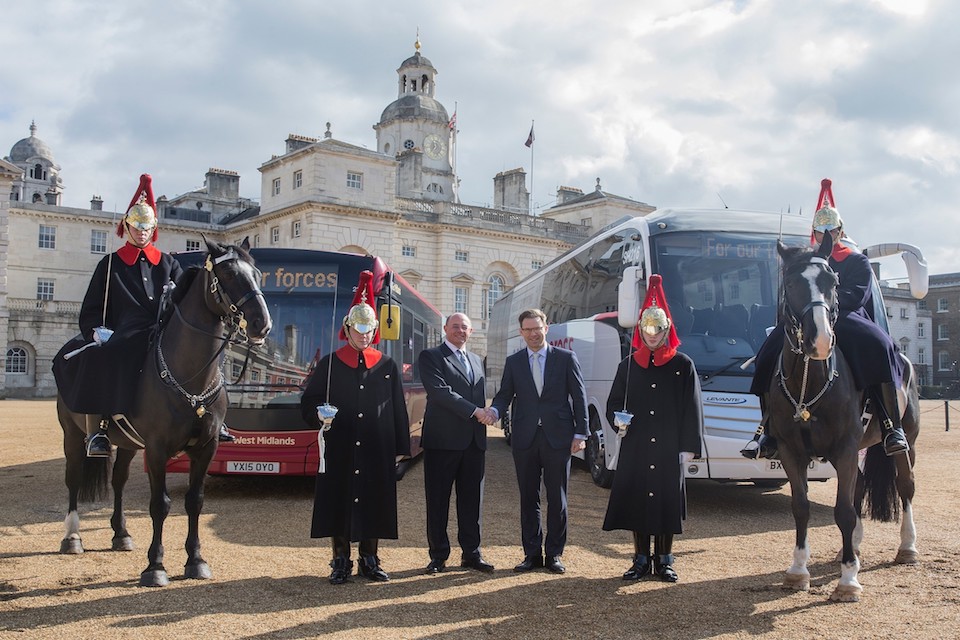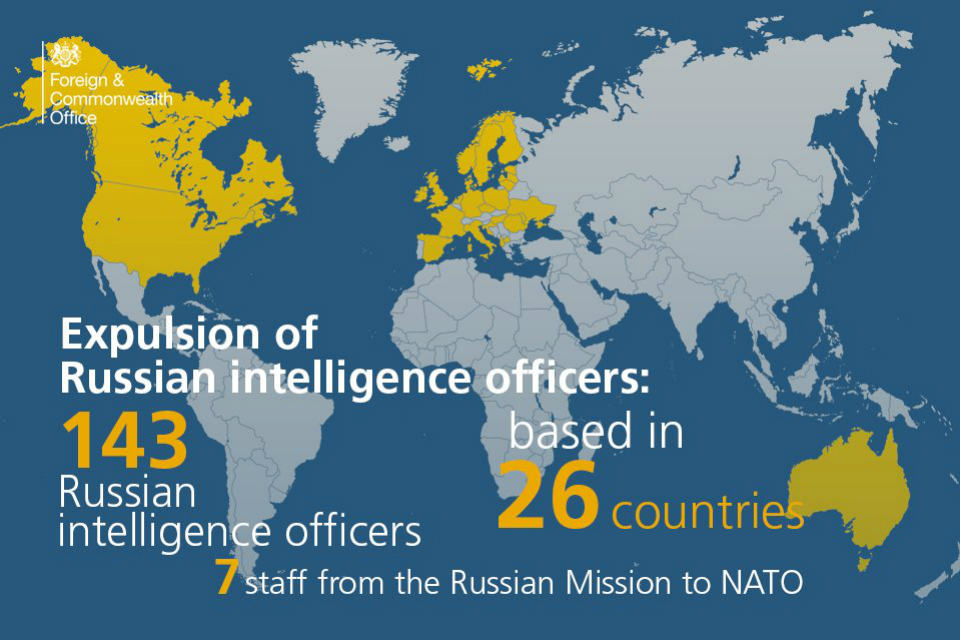Speech: Hard as well as soft power: the case for modern defence
1. BRITAIN’S PROUD HISTORY
The United Kingdom has a proud history on the world stage. We helped defeat tyranny in two world wars and communism in the Cold War. We have shielded the most vulnerable from Kosovo to Sierra Leone. We helped liberate millions from the shackles of oppression and exported democracy, tolerance and justice around the world. In the process, Britain alongside our allies ushered in a period of peace and prosperity across our continent unparalleled in its history
2. OUR ARMED FORCES ARE STILL DELIVERING FOR US TODAY
Today, our Armed Forces continue to uphold this proud British tradition. They are keeping us safe across the world. Our pilots are destroying terrorist targets in Iraq and Syria and policing Eastern European skies against an increasing threat from Russia.
Our soldiers stand sentinel with our NATO Allies in Estonia and Poland to deter this threat. We are strengthening the security of Afghanistan and, in South Sudan, helping establish stability and giving democracy the chance to grow and flourish.
Our sailors are countering international piracy, policing our waters and securing safe passage for the ships that support our global trade.
Beneath the waves our nuclear submarines go undetected, our submariners on patrol every day of every year providing our ultimate defence against the most deadly dangers to our way of life
In the last few weeks alone our forces have provided vital assistance in the wake of Storm Emma and are using their expertise to assist the ongoing criminal investigation following the horrific attack in Salisbury.
I want to thank each and every one of them for the dedication and commitment they have shown our nation.
3. THREATS INCREASING
Continuing to deliver for the Armed Forces is imperative – especially in a world where the threats are growing.
When it comes to non-state actors we’re seeing a generational shift with terrorist organisations able to access increasingly sophisticated weapons.
And state-based dangers are increasing. Back in 2010 we did not believe they posed us a credible threat. With the benefit of hindsight, this can, at best, be described as naive.
China is pushing for superpower status, restructuring the People’s Liberation Army, pushing towards the Indian Ocean and employing “sharp power” including military, media and economic pressure against any challenger.
Iran’s proxy military presence in Iraq, Syria and Yemen is well known.
North Korea has demonstrated an active global cyber capability while its nuclear actions are destabilising the international order, flouting decades’ worth of non-proliferation treaties.
And then there is Russia.
At a time when its economy is under pressure, it is still prioritising military expenditure, investing in highly capable equipment across all domains including long-range surface to air missiles, T-90 tanks, new advanced submarines, long-range precision strike systems and ISKANDER ballistic missiles, a new range of BLACKJACK strategic bombers and the new nuclear systems President Putin recently boasted about in his state of the nation address.
What is also clear is that the Kremlin is ripping up the international rule book. Using its growing hybrid capabilities to subvert, undermine, and influence countries around the world. Its cyber operations are active and brazen. It uses social media to muddy the waters and spread confusion.
Last year Russia’s military intelligence organisation directed the NotPetya ransomware activity. Overwhelming systems in Ukraine from its power grid to its postal service and causing hundreds of millions of pounds of damage to companies around the world including here in the UK
But Russia is capable of much more. It is already increasingly using proxies to undermine sovereign states. Its involvement in the Ukraine conflict has cost tens of thousands of lives.
In Syria, we’re seeing a humanitarian crisis where Russia is using private military companies such as the Wagner Group to reduce their liability and limit criticism on the world stage.
Meanwhile, Russia is also using its operatives insidiously to interfere in the political processes of other nations.
Security authorities have compelling evidence to show Russia was involved in the attempted 2016 coup in Montenegro, just prior to that country’s joining NATO.
And, if we doubted the threat Russia poses to our citizens, we only have to look at the shocking example of their reckless attack in Salisbury.
4. WE MUST HAVE THE CAPABILITY
But against this backdrop of threats, we shouldn’t forget that our Armed Forces remain truly world class and we are giving them the capabilities to respond
For example, we know the chemical threat doesn’t just come from Russia but from other actors so we’re evolving the capability to meet that danger.
I made the decision to offer the anthrax vaccine to our forces at the highest readiness providing them with vital protection against a deadly danger
And today I can announce we are building on our world class expertise at the Defence Science and Technology Laboratory in Porton Down.
We are investing £48 million in a new Chemical Weapons Defence Centre to maintain our cutting edge in chemical analysis and defence.
We’ve brought together Defence’s world-renowned explosive ordnance expertise with chemical, biological, radiological and nuclear specialists.
And we are continuing to invest and explore new ways and new capabilities to deal with this threat.
More broadly, our Armed Forces are internationally recognised as having an almost matchless combination of capability and experience, able to field a well-equipped Army division, with armoured brigades, strike brigades, and an air assault brigade, able to project power at distance through an expeditionary air group, based on the state-of-of the-art Typhoon and the new F35 Lightning II that will soon embark on our new aircraft carriers.
Those carriers, in turn, will form part of a hard-hitting maritime task group including modern destroyers, frigates, submarines and commando forces.
All this plus the world’s best Special Forces and some of the most advanced intelligence gathering and analytical capabilities in the Alliance.
These are all the hallmarks of a serious military nation:
able to conduct first night, first strike attacks with the technology to go into contested air, sea or land space to project power at range from the UK and make a major contribution to deterring threats not just in the Euro-Atlantic area but across the globe.
Many of these forces are on operations and missions today, we are making a major contribution to the campaign that has crippled Daesh, where we have helped to train over 60,000 Iraqi Security Forces, seen the first UK use of offensive cyber in combat and our airforce is operating at an intensity not seen in more than 25 years
We’re training the Afghan and Nigerian security forces and even the US Marine Corps.
And this month we have deployed HMS Trenchant to the Arctic with the US Navy on ICEX 2018 – confirming our ability to operate under the ice.
Our operational experience and prowess is the reason the UK has played an important leadership role in NATO since its formation.
The reason we lead a range of international divisions and operations right around the globe.
And the reason we’re the preferred operational partner for other top tier Western militaries, particularly the US and France who also acknowledge they too must modernise to stay ahead of our adversaries
5. THE GOVERNMENT’S RESPONSE
But, after a long period of relative peace, threats are increasing again.
So we have arrived at a profound moment in our history.
A crossroads where the choice before us as a nation is simple.
To sit back and let events overtake us.
Or step forward.
Seizing the moment, as we leave the European Union, to shape our vision for a bolder, more prosperous Britain.
A Britain proud of its past and confident of its future.
A Britain ready to reassert its right to do global good in a dangerous and unpredictable world.
A Britain able to protect our security and prosperity at home and abroad
After all, our Armed Forces are the face of Global Britain, enhancing our international reputation, epitomising everything that is great about our nation.
We talk about soft power and we must acknowledge the amazing work of the Foreign Office and DFID, but also of business and organisations like the British Council, in promoting Britain’s values around the world.
Our Armed Forces work with them delivering aid in the wake of Hurricane Irma minesweeping in the Gulf and bringing medical support to fight Ebola in West Africa.
But let’s be clear soft power only works because hard power stands behind it.
And that’s what our Armed Forces deliver and why they are so important to our future.
That’s why this is our moment to retain our competitive advantage and invest in hard power capabilities
6. MODERNISING DEFENCE PROGRAMME
And that is why we have launched our Modernising Defence Programme.
It will make sure our country can respond to the changing character of warfare and can deter and, if necessary, contest the new threats we face to British interests demonstrating to potential adversaries that their efforts to harm the UK are futile and not worth the costs they will incur.
So our Modernising Defence Programme will give us a more productive, more lethal, harder-hitting Joint Force able to counter conventional threats and deal with the new challenges of asymmetric conflict. Building on our existing plans for the future of our Armed Forces.
It will balance routine every day capabilities vital to fulfilling day-to-day tasks with highly sophisticated new equipment, using technology and different approaches to counter the full range of threats to our security and to be able to operate freely in all five domains, land, sea, air, space and cyber
It will prioritise game-changing technologies giving our service personnel the edge in combat.
In practice this will mean taking our intelligence, surveillance and reconnaissance capability to the next level, hoovering up information from beneath the waves, from space, from across the increasingly important electro-magnetic spectrum finding out what our enemies are doing in high-definition and providing artificial intelligence – enabling analysis that can stay ahead in a fast-moving world
It will mean accelerating the development of our innovative 77 Brigade – those reservists and regulars who give us the ability to win the information war – so we create and counter the narratives so central to modern conflict
It will mean investing in new more advanced and more capable armoured vehicles, more drones as well as stealth fighters and state-of-the-art anti-submarine ships in new autonomous systems – in areas like mine hunting – to enhance the protection we can provide to the Royal Navy and our NATO allies and in offensive cyber developing our capability, working in partnership with GCHQ.
Today I can announce we will be spending almost £4million with Thales and General Dynamics Land Systems-UK to deliver the Ajax Shot Detection System which can sense enemy gunfire and protect troops using our next generation armoured vehicles.
But we’ll be going further developing and embedding new approaches to warfighting protecting and enhancing our information networks to give our commanders the edge over our adversaries and pursuing technological ‘big bets’ in big data, artificial intelligence and novel weapons.
All the while building innovation and risk tolerance into our thinking, planning and operating.
So that’s my vision:
A modernised force.
Fit for the future.
Delivering the hard power to complement Britain’s soft power.
Strong, balanced and innovative Armed Forces, equipped with cutting edge capabilities.
Operating confidently in the new domains of warfare.
Preparing us for the unpredictable.
Keeping British citizens safe wherever they are.
Fulfilling our global ambitions and defending Britain’s national interests.
Our Modernising Defence Programme will make sure we continue leading in NATO.
Continue to be a capable and reliable contributor to missions led by close allies and partners but just as importantly continue to act independently or, lead multinational missions when the need arises.
And this weekend I will be attending a major exercise of the UK-led Joint Expeditionary Force – bringing together the capabilities of nine nations that allow us to respond more rapidly and pack a more powerful punch in times of crisis.
7. STRONGER PARTNERSHIPS WITH INDUSTRY
Our Modernising Defence Programme is also about our prosperity.
You cannot have prosperity without security.
What better illustration of that fact than our iconic hosts in Filton today – Rolls Royce.
The very embodiment of cutting edge, world leading technology, one of our largest suppliers of defence aerospace engines, and a driver of local economic growth, as an employer of more than 22,000 people across the UK.
Together with thousands of other brilliant British businesses they form an industry supporting one in every two hundred jobs in the UK and providing high-quality training and apprenticeships that in just over a decade generated more than £73 billion in exports.
Our Modernising Defence Programme will support the growth and competitiveness of the defence sector, helping to create and sustain jobs by transforming our partnership with industry.
It will allow us to deliver cutting-edge capability more effectively bring more small and medium sized enterprises into the supply chain encourage greater innovation and deliver long-term value whilst we drive a harder bargain for the goods and services we buy.
Since strong defence underpins our nation’s prosperity, I have invited Philip Dunne to conduct a review to help demonstrate it is far more than an insurance policy, it’s an investment in jobs at home and exports abroad.
He understands this sector extremely well and also brings an important independent perspective.
8. SUMMARY ON MDP
This work on the Modernising Defence Programme, delivering the right capabilities for our Armed Forces, making sure we remain a leading voice on the world stage, supporting economic growth and creating a stronger and more strategic partnership with industry will be substantially completed by the time of the NATO Summit in July, at which point we will be in a position to share some headline conclusions
I will be saying more in the weeks ahead about my vision for the Armed Forces we want to create.
I hope to engage with many of you between now and then, and would encourage you to take part in our public consultation.
9. CONCLUSION
But let’s be clear – after 1990, we believed the world was going to become a safer and better place with every year that passed.
Just as we have believed there would be only one superpower.
But, as we have seen increasingly clearly over the last few years, the reality is rapidly changing.
In every continent of the world there are not just extremists but states willing to undermine our values, ideas, and everything we stand for.
To deal with this challenge we need to ensure that soft power has the hard power to back it up.
As we take a new approach to Defence in a post-Brexit world we must work harder to explain why it matters to the nation.
When I visited the Parachute Regiment recently I was told something that’s stuck with me:
“Knowledge dispels fear”
So let’s not give into the demons of doubt
Instead let us be confident.
Let us be determined.
And let us be resolute in our belief that, by using all our power, hard and soft, Britain will continue bringing light to a darkening world.
